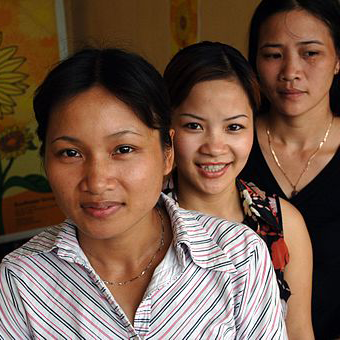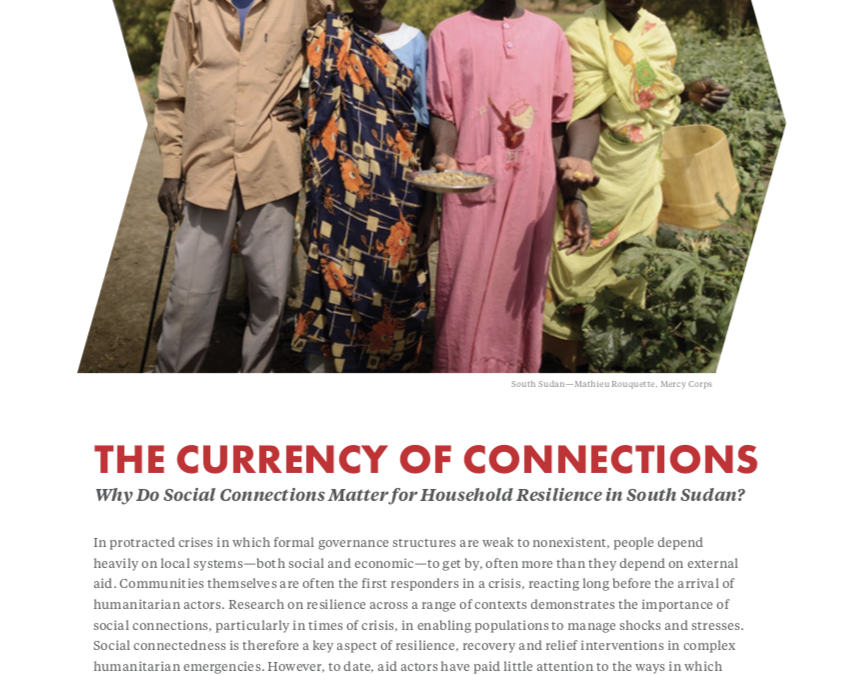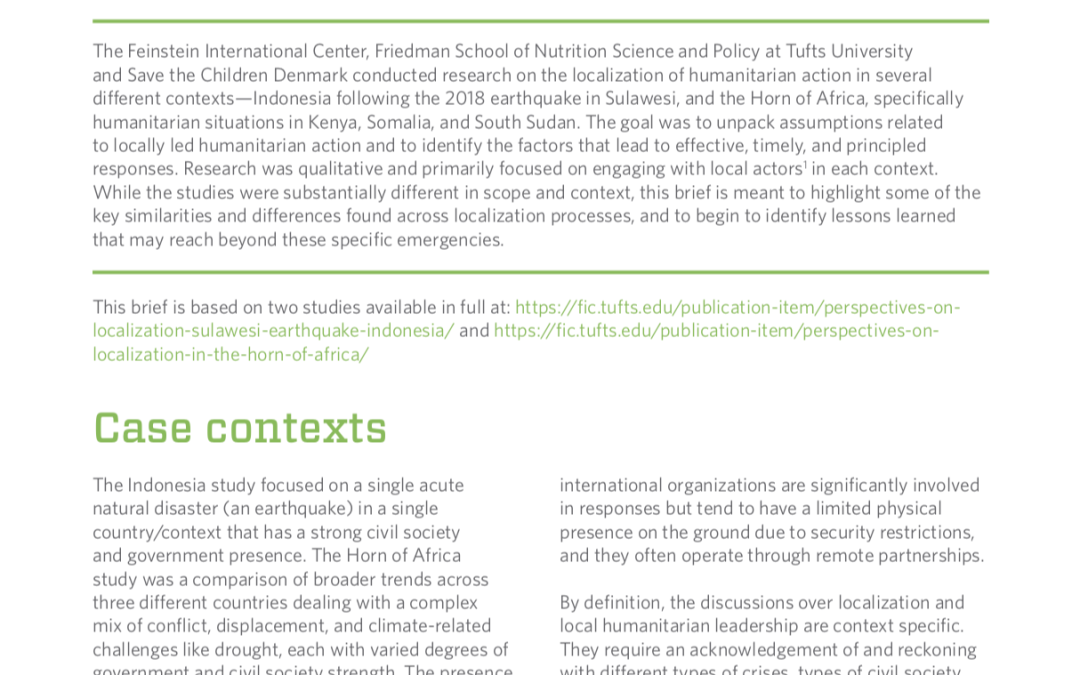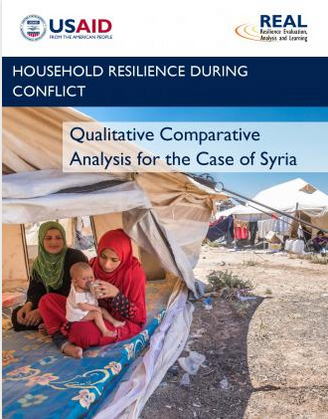
Gender, Sex, Age, and Disability in Humanitarian Response
This page brings together multiple projects related to gender, sex, and age in humanitarian response.

This page brings together multiple projects related to gender, sex, and age in humanitarian response.

This study looked at how social connections during times of crisis enable populations to manage shocks and stresses in South Sudan.
In this partnership with Mercy Corps, the Feinstein International Center team investigates the nature of social networks and social connectedness, and explores how humanitarian assistance can strengthen these as a key aspect of resilience, recovery and relief interventions in complex humanitarian emergencies.

This brief highlights similarities and differences between two studies on localization of humanitarian action and identifies lessons learned that may reach beyond specific emergencies in Indonesia and the Horn of Africa.

This paper contributes to the dialogue on methodological options by exploring the utility of applying Qualitative Comparative Analysis using fuzzy sets (fsQCA) for understanding complex causality and the conditions that support resilience in humanitarian contexts.